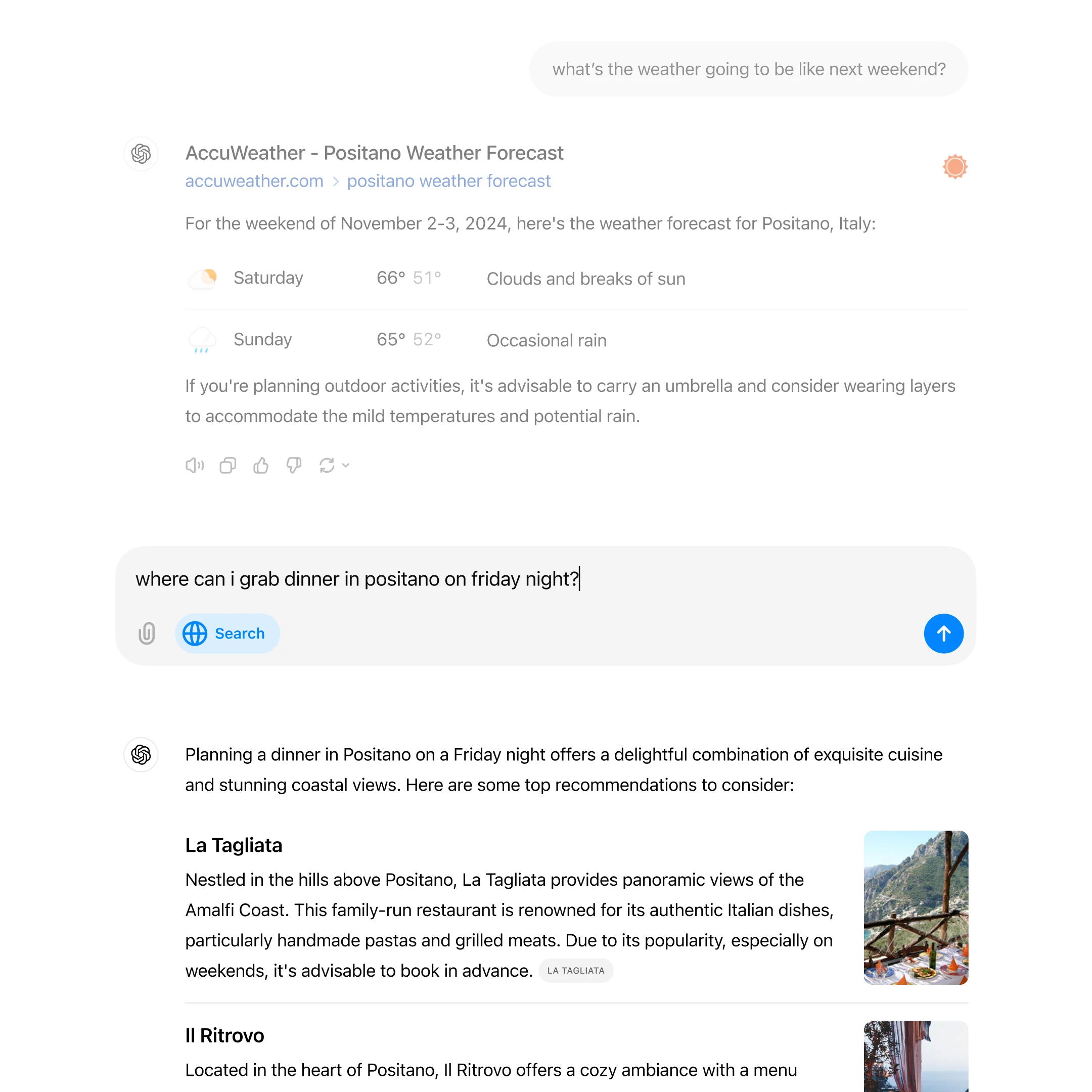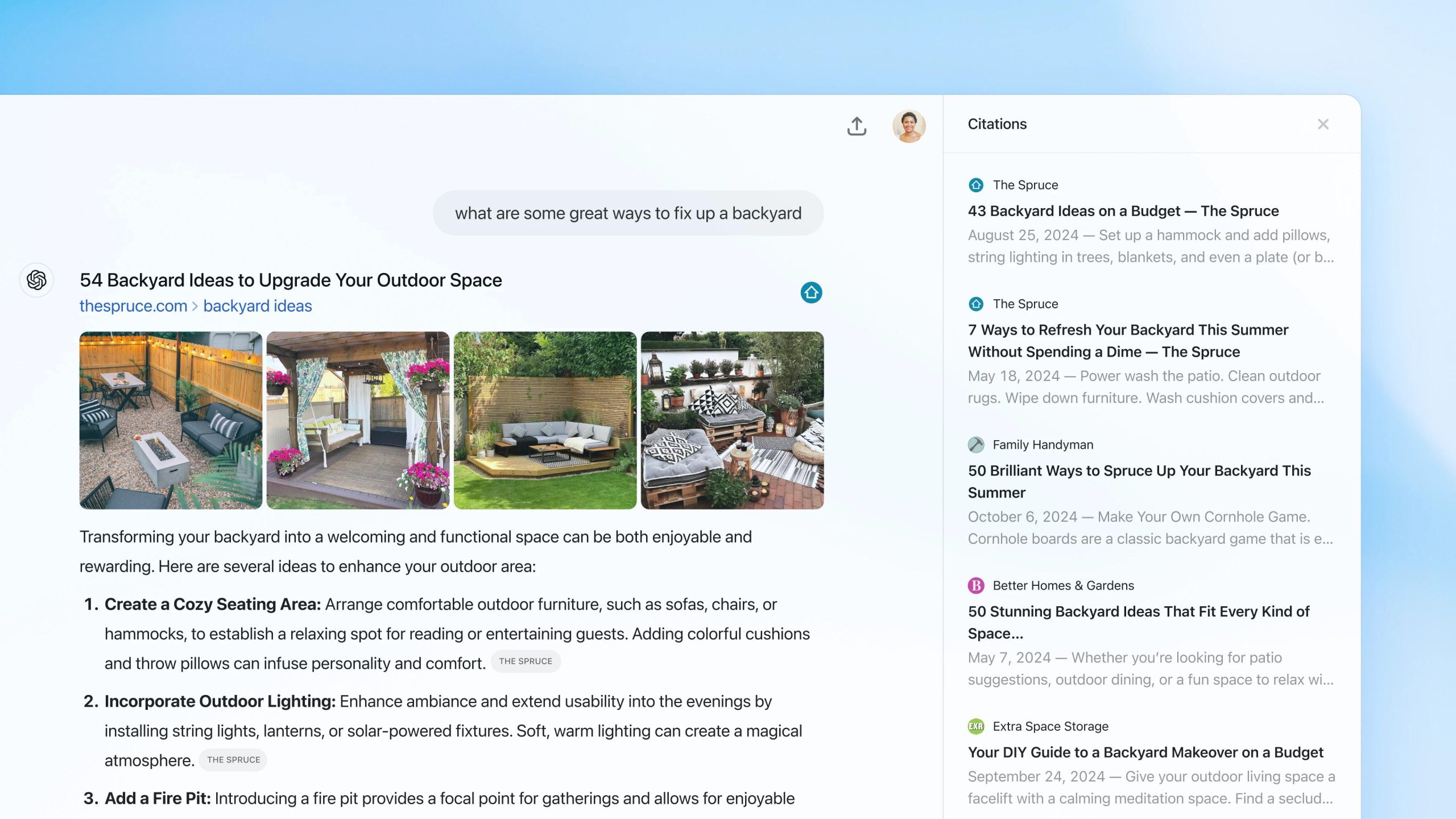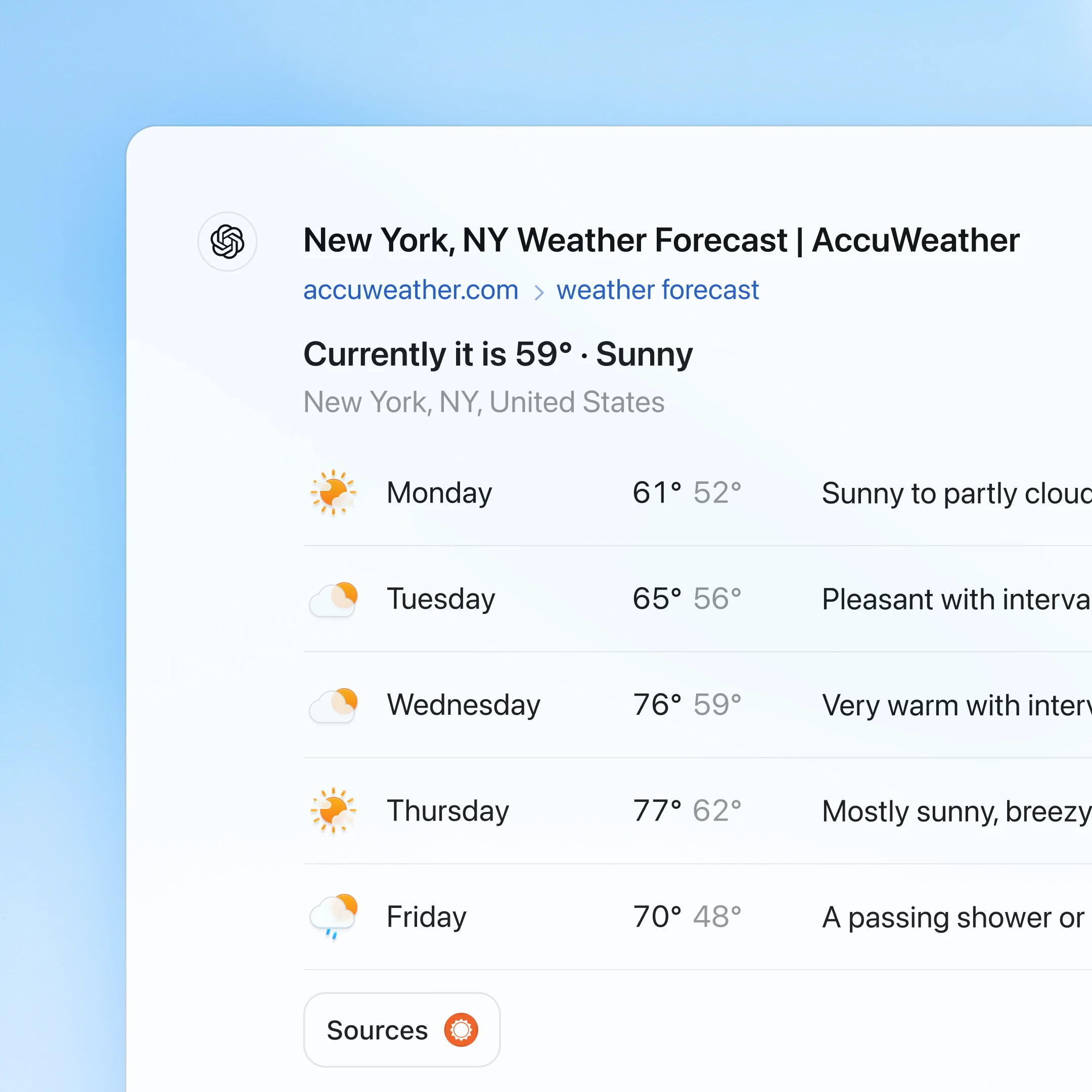|
Getting your Trinity Audio player ready...
|
OpenAI has begun broadly rolling out search engine features that it began testing in July, putting the heavily backed start-up in more direct competition with Google and major stakeholder Microsoft.
The feature also brings ChatGPT into competition with search-oriented AI offerings such as Perplexity, another well-funded start-up founded in 2022.
The search offering includes information such as up-to-the-minute sports scores, stock quotes, news, weather and more, powered by real-time search and data from partners including news publishers.
OpenAI said it collaborated with publishers including The Associated Press, Reuters, Axel Springer, Condé Nast, Hearst, Dotdash Meredith, the Financial Times, News Corp., Le Monde, The Atlantic, Time and Vox Media.

Publishing challenge
AI chatbots represent a quandary for publishers as they are not primarily designed to send users to a source, as search engines do, but rather to supply them directly with content.
The New York Times is amongst several news outlets that has sued OpenAI and Microsoft over copyright infringement for allegedly co-opting its content to train AI models.
News Corp. sued Perplexity last month on similar grounds.
And Google has begun introducing AI summaries at the top of its search results, adding another potential barrier siphoning off traffic from content publishers’ sites.
SearchGPT includes links to sources such as news articles and blog posts, accessible by clicking the “Sources” button below the response to open a sidebar.
Google’s AI summaries also now include links to sources in a sidebar.
ChatGPT’s initial public version in November 2022 did not include up-to-date information that had not yet been added to the underlying large language model.

Data retrieval
OpenAI engineering vice president Srinivas Narayanan told users in a Reddit conversation last week that SearchGPT, as the feature is called, uses Bing as one of “a set of services” to supply content.
The rise of AI chatbots as information retrieval tools also presents questions over their accuracy, as such tools have a tendency to present “hallucinations”, or falsely generated data, in the place of real information.
The company said it used feedback from test users to improve the search features.
It plans to “keep improving search, particularly in areas like shopping and travel” and to use the reasoning capabilities of its LLMs to “do deeper research”.
The feature is initially available to paid ChatGPT Plus and Team users, as well as users on SearchGPT’s waitlist.
ChatGPT Enterprise and Education users are to receive access in the next few weeks, with its free version getting the features in the coming months.





